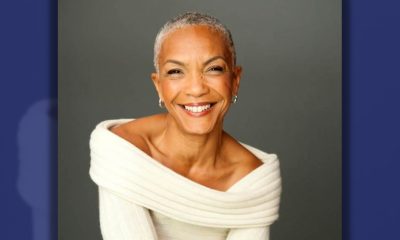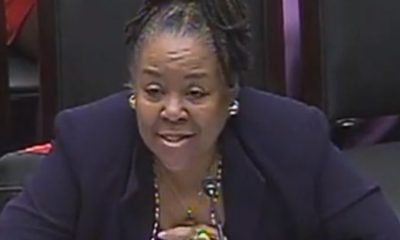Health
New Blood Tests, Liquid Biopsies, May Transform Cancer Care

Dr. Massimo Cristofanilli, oncologist and director of the Breast Care Center, speaks during an interview at Jefferson University Hospital in Philadelphia on Tuesday, April 28, 2015. With a tissue biopsy, “our treatments lag behind and they’re still based on limited information,” Cristofanilli says. With a liquid biopsy, “the power of this test has been to really find out how the disease changes, even in a short period of time.” (AP Photo/Jacqueline Larma)
MARILYNN MARCHIONE, AP Chief Medical Writer
A new type of blood test is starting to transform cancer treatment, sparing some patients the surgical and needle biopsies long needed to guide their care.
The tests, called liquid biopsies, capture cancer cells or DNA that tumors shed into the blood, instead of taking tissue from the tumor itself. A lot is still unknown about the value of these tests, but many doctors think they are a big advance that could make personalized medicine possible for far more people.
They give the first noninvasive way to repeatedly sample a cancer so doctors can profile its genes, target drugs to mutations, tell quickly whether treatment is working, and adjust it as the cancer evolves.
Two years ago, these tests were rarely used except in research. Now, several are sold, more than a dozen are in development, and some doctors are using them in routine care.
Gurpaul Bedi had one for colon cancer that spread to his lungs. About 10 percent of patients with metastatic colon cancer at the University of Texas MD Anderson Cancer Center now get liquid biopsies.
“I think it’s wonderful,” said Bedi, who lives in Atlanta and goes to Houston for his care. “A lung biopsy, many doctors told me, is not easy.”
In Philadelphia, a liquid biopsy detected Carole Linderman’s breast cancer recurrence months before it normally would have been found.
“Had this test not been available, we may not have known I had cancer on my spine until symptoms showed up,” which may have been too late for good treatment, she said.
The huge potential for these tests is clear. The problem: There are no big, definitive studies to show they help patients, how accurate they are, which type is best or who should get them and when.
Still, patients do better when drugs are matched to their tumors, and liquid biopsies may give a practical way to do that more often.
“I’m really excited about all of this,” said Dr. Razelle Kurzrock, a University of California, San Diego cancer specialist. “I spent most of my life giving drugs that were useless to people” because there was no good way to tell who would benefit or quickly tell when one wasn’t working, she said. “This is so much better.”
WHO GETS TESTED NOW
The tests are mostly used when a tissue biopsy can’t easily be done, when the cancer’s original site isn’t known, or when drugs have stopped working and doctors are unsure what to try next, said Dr. Scott Kopetz, a colon cancer specialist at MD Anderson. The tests are catching on “faster than I anticipated,” he said.
At Philadelphia’s Thomas Jefferson University, Dr. Massimo Cristofanilli has used them on about 120 breast cancer patients, including two dozen like Linderman with a high risk of recurrence.
A tissue biopsy typically samples one section of a tumor, and tumors can vary widely, with different genes and hormones active in different parts, he said. Also, cancer that has spread often differs from the original site, and tumors change rapidly in response to treatment.
With a tissue biopsy, “our treatments lag behind and they’re still based on limited information,” Cristofanilli said. With a liquid biopsy, “the power of this test has been to really find out how the disease changes, even in a short period of time.”
HOW THEY WORK
Early versions looked for whole tumor cells in blood. Newer ones look for free-floating cancer DNA, enabling gene profiling to see what mutations drive the cancer. Kopetz and Cristofanilli use one from Guardant Health Inc. of Redwood City, California, that has been sold in the U.S. since June 2014 and in parts of Europe and Asia.
Many companies are working on similar tests including Sequenom, a San Diego biotech that already sells one for prenatal screening, using fetal DNA in maternal blood. Many companies tried prenatal screening with fetal cells but it didn’t work, said chief science officer Dirk van den Boom. “Cell-free DNA really was the breakthrough” that enabled wide use, and the same could happen with these cancer tests, he said.
THE COST
Whether liquid biopsies will be cost-effective is unknown. Guardant’s test costs $5,400; some insurers cover it for certain types of patients. Gene profiling from a tissue biopsy costs about the same. The promise of liquid biopsies is that they can be done periodically to monitor care, but more tests means more cost.
They may save other costs, though. A traditional lung biopsy is thousands of dollars. Money could be saved by skipping cancer drugs that ultimately don’t work; many cost $10,000 to $15,000 a month.
With cell-free DNA tests, even doctors in rural areas can offer precision medicine because they can ship a blood sample to a lab. “We think that’s the future,” said Dr. Charles Baum, a former Pfizer cancer drug chief who now heads Mirati Therapeutics, a San Diego biotech company developing gene-targeting drugs
DO THEY WORK?
Many studies suggest that liquid biopsy results largely mirror those from tissue ones, and sometimes find more mutations. A study Kopetz presented in April at an American Association for Cancer Research meeting found the blood tests detected cancer mutations in the vast majority of 105 colorectal cancer patients. For 37 percent of them, doctors thought a drug could target a mutation that was found.
Still, no big studies show that liquid biopsies give better care or extend lives. Without that proof, how much they will be used by doctors and covered by insurers remains to be seen.
THE FUTURE
A San Diego company, Trovagene, is working on an even faster, easier liquid biopsy — a test to detect tumor DNA in urine. One scenario: a patient collects a urine sample every day for a week after starting a new drug and ships them to a lab.
“In as little as three to five days, you can observe dramatic changes” that suggest a response to treatment, said Trovagene’s chief executive, Antonius Schuh.
Work on this test is still very early.
Ultimately, liquid biopsies might offer a way to screen for cancer besides the mammograms, colonoscopies and other methods used now. That raises even more questions, including when to call something “cancer” and whether it needs treatment if there are only abnormal cells in the blood.
“Why does there have to be a tumor? The tumor is the symptom. The disease is the DNA,” Schuh said.
___
Marilynn Marchione can be followed at http://twitter.com/MMarchioneAP
Copyright 2015 The Associated Press. All rights reserved. This material may not be published, broadcast, rewritten or redistributed.
Alameda County
Access Better Health with Medically Tailored Meals – Transforming Health Through Nutrition for Medi-Cal Patients
Launched in 2018, the Medically Tailored Meals pilot program was designed to help Medi-Cal patients with congestive heart failure by reducing hospital readmissions and emergency department visits by providing tailored meals meeting specific dietary needs. The program’s success in improving health outcomes and reducing costly emergency room visits encouraged the Department of Health Care Services (DHCS) to expand the Medically Tailored Meals program to all 58 counties through Medi-Cal transformation and a new set of services called Community Supports.

Advertorial
Launched in 2018, the Medically Tailored Meals pilot program was designed to help Medi-Cal patients with congestive heart failure by reducing hospital readmissions and emergency department visits by providing tailored meals meeting specific dietary needs.
The program’s success in improving health outcomes and reducing costly emergency room visits encouraged the Department of Health Care Services (DHCS) to expand the Medically Tailored Meals program to all 58 counties through Medi-Cal transformation and a new set of services called Community Supports.
Medically Tailored Meals are one of 14 new services offered through Medi-Cal that provide members with access to new and improved services to get well-rounded care that goes beyond the doctor’s office or hospital.
Medically Tailored Meals: Overview
Malnutrition and poor nutrition can lead to severe health outcomes, especially among Medi-Cal patients with chronic health conditions. Medically Tailored Meals aim to improve health outcomes, reduce hospital readmissions, and enhance patient satisfaction by providing essential nutrition.
Key Features:
- Post-Discharge Delivery: Meals are delivered to patients’ homes immediately following discharge from a hospital or nursing home.
- Customized Nutrition: Meals are tailored to meet the dietary needs of those with chronic diseases, designed by registered dietitians (RD) or certified nutrition professionals based on evidence-based guidelines.
- Comprehensive Services: Includes medically tailored groceries, healthy food vouchers, and food pharmacies.
- Educational Support: Behavioral, cooking, and nutrition education is included when paired with direct food assistance.
Key Benefits:
- Address Food Insecurity: Mitigates poor health outcomes linked to food insecurity.
- Support Complex Care Needs: Tailored to individuals with chronic conditions.
- Improve Health Outcomes: Studies show improvements in diabetes control, fall prevention, and medication adherence.
Patient Testimonial:
“My diabetes has gotten better with the meals. I’ve kept my weight down, and I feel much better now than I have in a long time. I’m one of the people this program is meant for.” — Brett
Eligibility:
- Eligible Populations: Eligible Medi-Cal members include those with chronic conditions like diabetes, cardiovascular disorders, congestive heart failure, stroke, chronic lung disorders, HIV, cancer, gestational diabetes, and chronic mental or behavioral health disorders. Also, those being discharged from a hospital or skilled nursing facility or at high risk of hospitalization or nursing facility placement are also eligible.
- Service Limitations: Up to two meals per day for up to 12 weeks, extendable if medically necessary. Meals eligible for reimbursement by alternate programs are not covered.
Cost Savings and Improved Health Outcomes:
- Health Outcomes: Research indicates a 22% to 58% decrease in emergency department visits and a 27% to 63% decrease in inpatient admissions among Medically Tailored Meals recipients, translating to significant health care cost savings.
Project Open Hand: A Success Story
Project Open Hand has been a leader in providing Medically Tailored Meals, significantly impacting the lives of Bay Area Medi-Cal patients with chronic illnesses. Since its inception, Project Open Hand has delivered nutritious meals to individuals with diabetes, HIV, and other serious health conditions, demonstrating remarkable health improvements and cost savings.
Key Achievements:
- Improved Health Outcomes: Project Open Hand’s research found a 50% increase in medication adherence among recipients of Medically Tailored Meals.
- Reduced Hospitalizations: Their program showed a 63% reduction in hospitalizations for patients with diabetes and HIV.
- Enhanced Quality of Life: Patients reported better health and increased energy levels.
Project Open Hand ensures that each meal is prepared using fresh, wholesome ingredients tailored to meet the specific dietary needs of its clients. By partnering with Medi-Cal managed care plans, Project Open Hand continues to provide life-saving nutrition to those who need it most.
Join Us in Our Mission
You can experience the profound impact of Medically Tailored Meals by joining the Medi-Cal Community Supports services initiative. Your involvement can make a difference in promoting your health through nutrition.
Learn More
For more information about Medically Tailored Meals and how to get involved, call the state’s Medi-Cal Health Care options at 800-430-4263 or contact your local managed care plan.
In Alameda County, Medi-Cal recipients can contact:
* Alameda Alliance for Health: 510-747-4567
* Kaiser Permanente: 855-839-7613
In Contra Costa County, Medi-Cal recipients can contact:
* Contra Costa Health Plan: 877-661-6230
* Kaiser Permanente: 855-839-7613
In Marin County, Medi-Cal recipients can contact:
* Partnership Health Plan of California: 800-863-4155
* Kaiser Permanente: 855-839-7613
In Solano County, Medi-Cal recipients can contact:
* Partnership Health Plan of California: 800-863-4155
* Kaiser Permanente: 855-839-7613
Your health and well-being are your health care provider’s top priority. Medically Tailored Meals are designed to enhance quality of life by advancing health care through the power of nutrition. Experience the benefits today, and take the first step toward a healthier you.
California Black Media
Not So Sweet: California State Health Campaign Highlights Dangers of Sugary Drinks
The California Department of Public Health (CDPH) and CalFresh Healthy Living, the state’s nutrition assistance program, recently launched a health campaign to illuminate the risks of drinking sugar-sweetened beverages and the health benefits of hydrating with water. The “Not So Sweet Side” initiative encourages families to make informed decisions about the drinks they choose and to be aware of the sugar content present in them.

By Edward Henderson, California Black Media
The California Department of Public Health (CDPH) and CalFresh Healthy Living, the state’s nutrition assistance program, recently launched a health campaign to illuminate the risks of drinking sugar-sweetened beverages and the health benefits of hydrating with water.
The “Not So Sweet Side” initiative encourages families to make informed decisions about the drinks they choose and to be aware of the sugar content present in them.
According to the campaign, consuming too much sugar has been associated with an increase in chronic conditions and diseases such as type 2 diabetes, heart disease and tooth decay. African Americans face a higher risk of developing diabetes mellitus, heart disease and tooth decay.
Dr. Redieat Assefa is a pediatrician at Riverside University Health Systems. She spoke at a webinar hosted by California Black Media introducing the campaign to ethnic media publishers across California.
Assefa underscored the importance of reading labels on sugary drinks you may consume and how to identify drinks that contain too much.
“When reading a nutrition label, there are a few key components that I would like us to consider. The first thing is the serving size of your sugary drinks. Is it one can? Is it one bottle? Then you go down to your total carbohydrates, which can be broken down to your fibers and sugary, added sugars or non-added sugars.”
To simplify the process, compare the grams of sugar in a box of Apple Juice with preservatives that could be around 40 grams of sugar and that of natural juice which averages around 6 grams.
Assefa also added that research indicates that African American women who drink one to two sugary beverages daily have an increased risk of type 2 diabetes. Sugary drinks can lead to high blood pressure, hype, and hypertension, contributing to a greater risk of heart disease among African American young adult men who, on average, consume sugary beverages at a higher level than other groups.
Assefa pointed out that there are about 10 teaspoons of sugar in a single can of soda.
Dr. Maxmillian Chambers, a dental professional and public health advocate, also spoke on the panel promoting the campaign highlighting the impact sugary drinks can have on dental health.
“As we continue this dialogue, it’s crucial to turn our focus to oral health, a key component of our overall well-being that doesn’t often receive the attention it deserves. Sugary drinks are a significant contributor to tooth decay. Research shows that drinking more than two eight-ounce servings of sugary beverages per week can drastically increase the risk of cavities. And for our youth, particularly those aged 9 to 18, sugary drinks are primary sources of added sugar in their diets.”
Lakeysha Sowunmi, a mom and public health advocate who has worked to influence state policy and mobilize communities, including churches, around health issues, said, “I work with families on a budget, for example, and help them understand CalFresh and the resources that are available. We talk about portion control. We talk about feeding big families.”
The CalFresh Healthy Living Program is led by CDPH’s Nutrition and Physical Activity Branch. To explore recipes, resources, and tips for making healthier beverage choices, visit http://uncoverhealthyhabits.com/
Black History
Health is Our Wealth: An Afrocentric Perspective to Health & Wellness
When I was an early-career mental health professional, my close friend was coming up in his construction career. We came up in the hood together, learning life lessons from living the street life. As we grew in our fields, we wanted to showcase our hard work and income though our appearances and the valuables we owned. I flaunted the flyest sneakers, and he customized his car rims as status symbols. Our understandings of wealth, worthiness, and wellness as young Black professionals reflected Eurocentric materialism, which we have now discovered is unhealthy.

By Art Harris
When I was an early-career mental health professional, my close friend was coming up in his construction career. We came up in the hood together, learning life lessons from living the street life. As we grew in our fields, we wanted to showcase our hard work and income though our appearances and the valuables we owned. I flaunted the flyest sneakers, and he customized his car rims as status symbols. Our understandings of wealth, worthiness, and wellness as young Black professionals reflected Eurocentric materialism, which we have now discovered is unhealthy.
It became imperative for us to re-align our concepts of health, wealth and wellness with African-Centered philosophies. This is what Baba Dr. Wade Nobles refers to as Sakhu (Skh), the illumination of the spirit via African science, study, understanding, and knowledge in his book Seeking the Sakhu: Foundational Writings for an African Psychology. It takes awareness, intentionality, and commitment to raising our consciousness and shifting from Eurocentric paradigms of health, wealth and wellness to Afrocentric ones.
Baba Wade teaches us that racism is the pre-existing condition in America and in The Island of Memes: Haiti’s Unfinished Revolution, he explains that the liberation of the African mind can only happen when we return to an African consciousness. Only a healthy mind can produce a healthy body. Many of the unhealthy urges African Americans experience are a result of imagery planted by the mentally ill White supremacist culture. In enslaving and oppressing Africans in America, the White supremacist culture destroyed our ancestral memories, rituals, and conceptions of health.
African-centered anthropologists and scholars have looked to the Nile Valley civilizations of ancient Kemet (Egypt) and Kush to illustrate the historical greatness that is our legacy. Profound teachers, ministers, researchers, and psychologists like Malcolm X, Tony Browder, Dr. Ivan Van Sertima, Dr. Asa Hilliard III, Chiekh Anta Diop, and Drusilla Dunjee Houston highlight the great contributions of African people to the fields of medicine, science, religion, politics, architecture, and more.
In his books Spirituality Before Religions and the Shabaka’s Stone, Professor Kaba Hiawatha Kamene teaches that the principles of Ma’at (truth, justice, harmony, balance, propriety, order, reciprocity) ensured morality and justice were at the center of maintaining a healthy, righteous Kemetian society.
For myself, it took a growth mindset and reading books like New Visions for Black Men and Breaking the Chains of Psychological Slavery by Dr. Na’im Akbar. Now, about 20 years later, my friend and I both have advanced in our fields and we now value health and wealth as it pertains to physical, familial, financial, mental, and spiritual wellness.
As we reconnect to natural approaches to healing and attune with what is/is not healthy for people of African ancestry, then we can realize health, wellness, and joy for our families and communities.
About the Author
Art Harris is a Bay Area native, veteran of the U.S. Navy, licensed marriage and family therapist, and school psychologist. He is the Bay Area Chapter of the Association of Black Psychologists (Bay ABPsi) Continuing Education Unit Co-Coordinator. Bay ABPsi Chapter is a healing resource committed to providing the Post Newspaper with monthly discussions about critical Black Mental Health issues. Please join us at our meetings every 3rd Saturday via Zoom or contact us at bayareaabpsi@gmail.com.
-

 Alameda County5 days ago
Alameda County5 days agoAlameda County District Attorney Pamela Price Announces $7.5 Million Settlement Agreement with Walmart
-
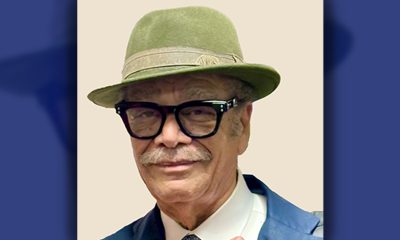
 Activism3 weeks ago
Activism3 weeks agoCOMMENTARY: DA Price Has Done Nothing Wrong; Oppose Her Recall
-
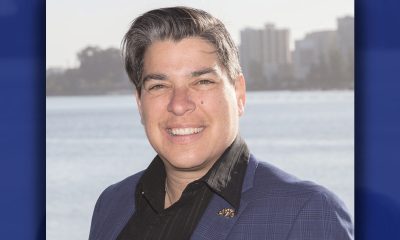
 Activism2 weeks ago
Activism2 weeks agoOP-ED: Hydrogen’s Promise a Path to Cleaner Air and Jobs for Oakland
-

 Activism3 weeks ago
Activism3 weeks agoBarbara Lee, Other Leaders, Urge Voters to Say ‘No’ to Recalls of D.A. Pamela Price, Mayor Sheng Thao
-
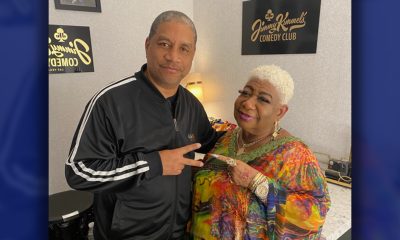
 Community2 weeks ago
Community2 weeks agoTerry T. Backs Oakland Comedy Residency by Oakland’s Luenell at Jimmy Kimmel’s Comedy Club in Las Vegas
-

 Activism3 weeks ago
Activism3 weeks agoOakland Post: Week of October 9 – 15, 2024
-

 Business2 weeks ago
Business2 weeks agoStudy Confirms California’s $20/Hour Fast Food Wage Raises Pay Without Job Losses
-

 Bay Area2 weeks ago
Bay Area2 weeks ago2024 Local Elections: Q&A for Oakland Unified School Candidates, District 3









